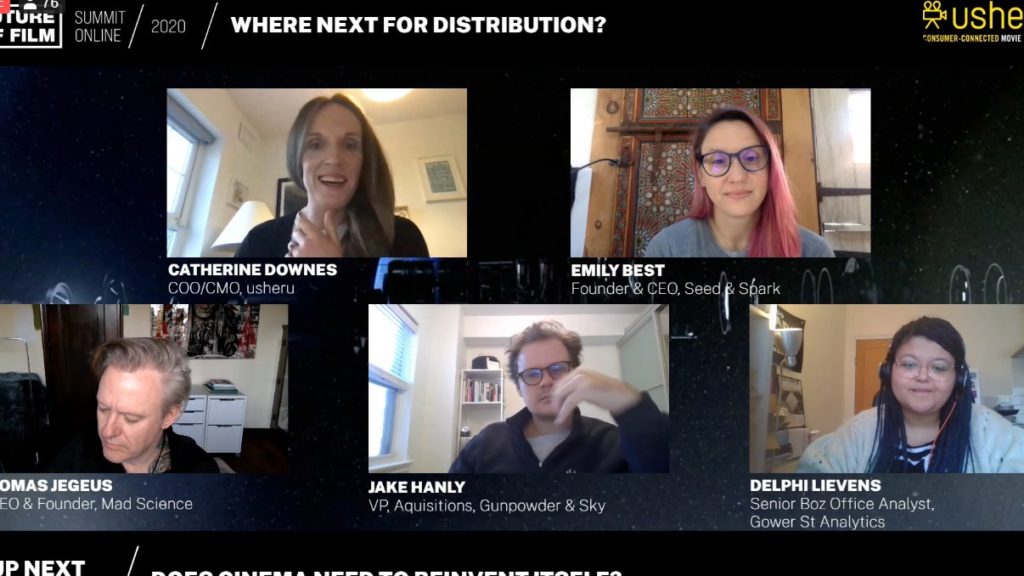Gower Street Senior Box Office Analyst Delphine Lievens was invited to participate in the panel discussion “Where Next for Distribution?” at the first edition of the Future of Film Summit, held on Friday, November 20.
The discussion was moderated by Catherine Downes, COO/CMO at Usheru. Delphine was joined by fellow panellists: Emily Best, Founder and CEO at Seed & Spark; Tomas Jegeus, Founder and CEO at Mad Science; and Jake Hanly, VP, Acquisitions for Gunpowder & Sky. The panel was bought together to reflect on the seismic changes that film distribution has seen this year, and to discuss what the way forward looks like for 2021 and beyond.

Delphine and her fellow panellists discussed a number of topics, first looking at the sort of films that have managed to thrive during the COVID-19 era. Delphine pointed to the box office success of local titles in a number of territories, such as Japan and China, where box office recovery is generally looking stronger than in the US. She also suggested that going forward international territories should focus on producing their own content rather than relying on Hollywood for a steady output of films.
The discussion also turned to independent films and distribution companies who have proven themselves to be easily adaptable this year. Whilst the pandemic has caused a backlog of releases from the studios, smaller companies have been able to pivot quickly to relying more heavily on VOD. This led to further discussion on the need for film distribution to look at new models that rely less on the traditional long window between theatrical and home entertainment. The panel referenced some of the history-making windowing deals that Universal have made this year, as well as the change in focus at other distribution companies and studios.
There was also some conversation around the desperate need for more diversity, both in front of the camera and behind it. Delphine argued that the content we produce needs to be more reflective of the population we are trying to appeal to. Not enough BAME directors, writers and creators are being given a chance to share their work. She also pointed to the fact that this starts with diversifying the film workforce and examining who the current gatekeepers are, and what barriers they are imposing that don’t allow for a more diverse film output.
Lastly, the panel discussed the pros and cons of using data, and how different companies in film, and in the wider tech world, are using data to understand their audience. Delphine and other panel members called on the studios and distribution companies to embrace data more, as it will be absolutely vital as they fight not just against other studios, but also with the likes of Google, Apple and Amazon for their audience’s attention.



